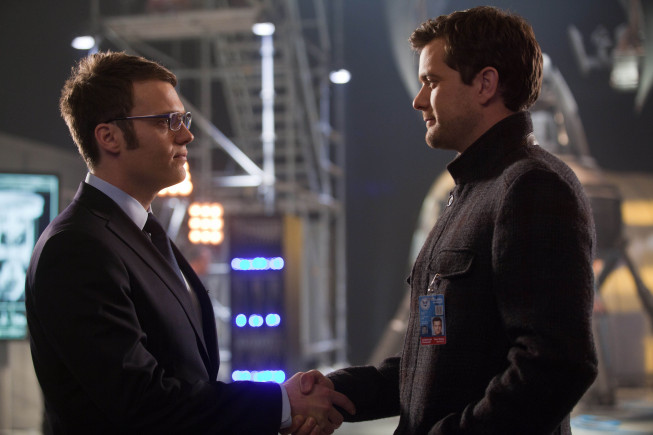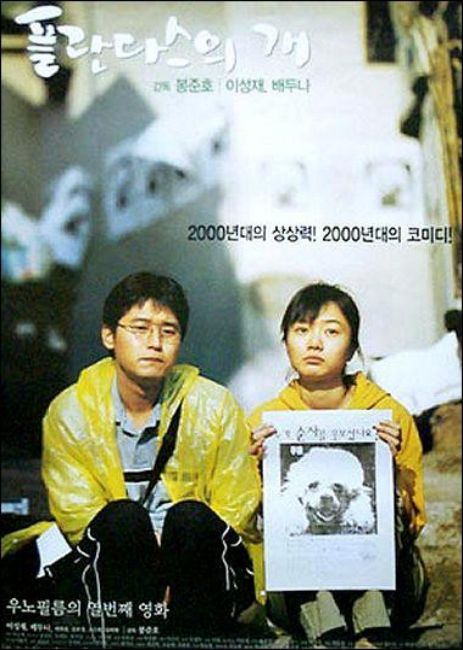 Beginners
Beginners
Written by Mike Mills
Directed by Mike Mills
USA, 2011
“Indie,” as a signifier, has grown into something sinister in the post-Wes Anderson landscape. It’s come to represent cloying, predictable romantic dramedies about aimless young men and the insufferably quirky women who inspire them to “really live, man.” Despite possessing many of the genre’s signifiers, Mike Mills’s second feature Beginners dodges the surface-level concerns of those films with a devastatingly honest look at grief, love, and the prospect of individual change, even if it occasionally indulges in a bit of forced quirk itself.
Ewan McGregor stars as Mills surrogate Oliver, a 38-year-old graphic designer working for a small firm in LA. Oliver is still processing the life and death of his father, Hal (Christopher Plummer), who declared to his son that he was gay at the age of 75, having known it since he was a young boy. While trying to complete a commission, Oliver juggles reminiscences of his ailing father, childhood memories of his sexually frustrated mother (Mary Page Keller), his father’s considerably younger lover (Goran Visnjic), and finally Anna (Melanie Laurent), a troubled actress he meets at a costume party shortly after his father’s death.
Beginners has an obvious advantage over most of its contemporaries in the troubled-Westerner sweepstakes: it has a believability and heft that perhaps only genuine experience can provide. Mills’s father really did come out at 75 and passed only a few years later. Rather than mine his personal life for cheap “based on a true story” pathos, Mills uses these events as a jump-off point to explore pet themes with an unusual depth and sensitivity. The revelation of his father’s true sexuality forces Oliver to reconsider his parents’ marriage, as well as his own tentativeness in relationships. What makes Oliver such a refreshing protagonist is his genuine sense of unselfish reflection; much of his time in the film is spent pondering the separate plights his parents faced, as well as contextualizing his own difficulties so as not to veer off into petty whining. As he notes in his narration, the only reason Oliver has the time to consider and stew in his own grief and recollection is because his parents were so successful in shunning their own difficulties in order to ensure his comfort and security.
 That Mills’s film even takes note of this paradox is of note, particularly for the way it exposes so many other writer-directors’ efforts as psychologically shallow. Unfortunately, the film’s other major plot thread, Oliver’s affair with Anna, is a little less sure-footed. Their first few dates dial the twee factor well into the red (the worst offender being a museum trip on rollerskates), threatening the film’s carefully maintained sense of tone. As Anna gradually drops the cutesy act and reveals her own hardships, their relationship becomes less of a destabilizing force, but it never quite rises to the level of the rest of the film.
That Mills’s film even takes note of this paradox is of note, particularly for the way it exposes so many other writer-directors’ efforts as psychologically shallow. Unfortunately, the film’s other major plot thread, Oliver’s affair with Anna, is a little less sure-footed. Their first few dates dial the twee factor well into the red (the worst offender being a museum trip on rollerskates), threatening the film’s carefully maintained sense of tone. As Anna gradually drops the cutesy act and reveals her own hardships, their relationship becomes less of a destabilizing force, but it never quite rises to the level of the rest of the film.
Ultimately, the heart of the film resides in Oliver and Hal’s many scenes together. By making Hal’s fate clear in the film’s opening moments, Mills makes sure that Beginners is not some manipulative tear-jerker meant to impart easy lessons. Instead, Hal and Oliver’s story is one of quiet revelation, re-examination, personal evolution, and the possibility of acceptance. It certainly doesn’t hurt that McGregor and Plummer are at the top of their game here, and play off of each other wonderfully.
Though a few overtly twee moments rankle (the Jack Russell subtitles are one small step too far in the direction of all-out preciousness), Mills has successfully channeled a personal vision to maximum effect here. Beginners is, above all else, refreshingly adult, never settling for vapid stylistics or tiresome navel-gazing. Self-conscious writer-directors of the future, take note: this is how it’s done.
Simon Howell





